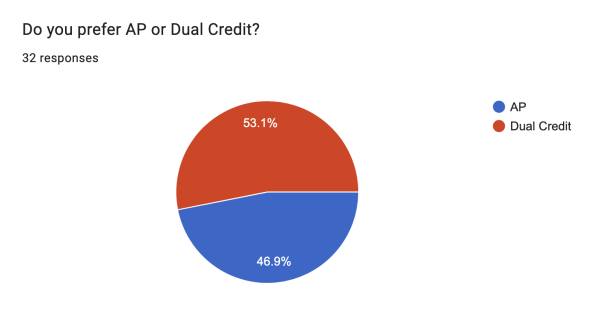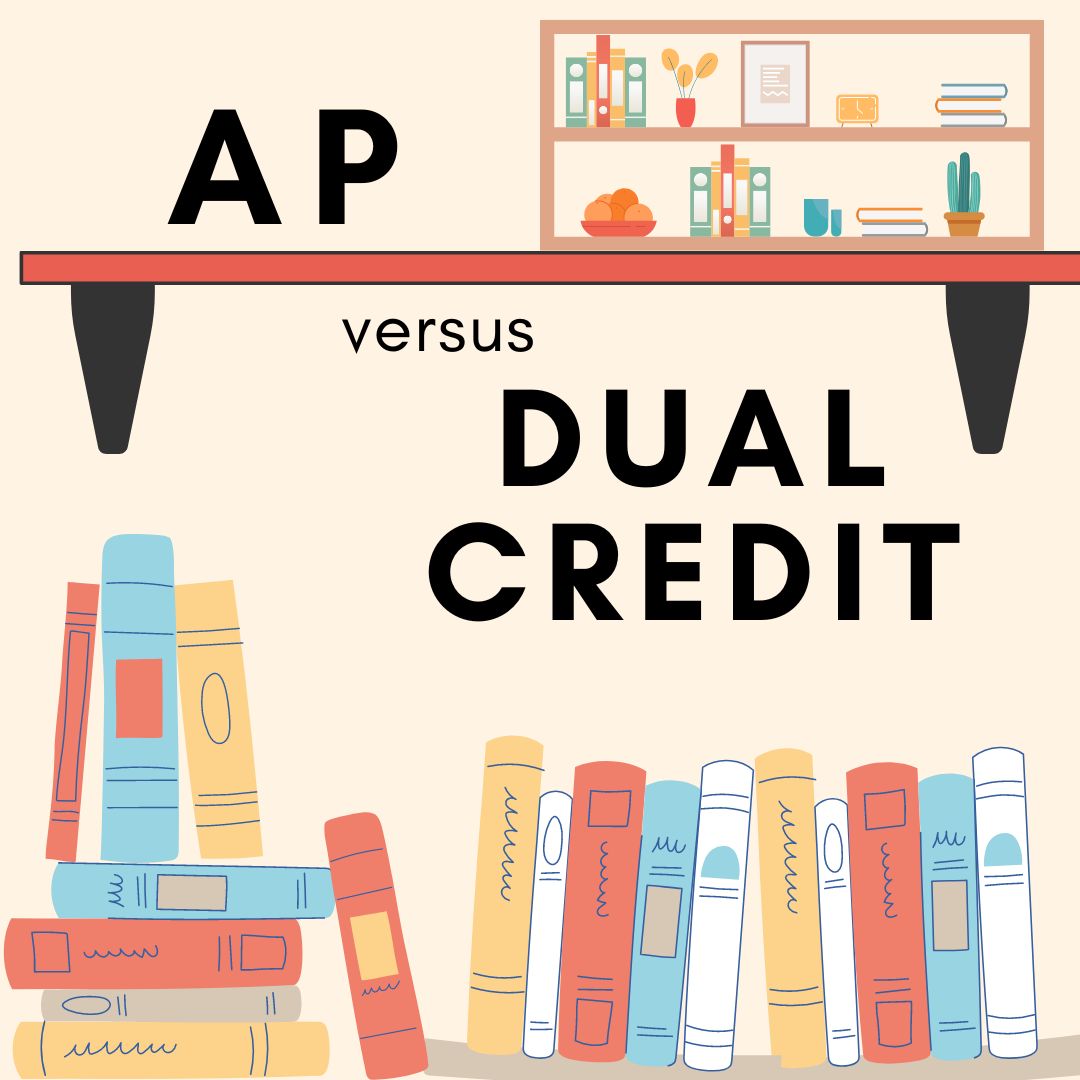Taking harder courses in high school not only puts students ahead of the game in college but also creates healthy study habits and a routine to help them succeed. One of the biggest questions students ask: Which is better to take– AP or Dual Credit courses?
AP Courses:
AP stands for advanced placement. It is a course created by the College Board whose material is the same for every student across the country taking part in it. This is a college level course that will earn them college credit if they succeed on the AP test.
“AP offers a more universal and rigorous education that I feel is not given through Dual Credit,” senior Fatema Smadi said. “More colleges accept AP over Dual Credit because they see it as a better measure for college-readiness.”
The test is rated from one to five, with one being the lowest score and five being the highest. With the credit, they will be able to “skip” that class in college. The course is free and available for all students but students are required to pay a $10 fee at LHS for the test. The actual cost for the test is $95 but the school covers most of the fee.
“AP is more challenging and its nice to not having to pay a lot of fees dual credit has,” senior Angelina Jansen said. “If I know I can pass the AP test, I prefer the AP courses.”
Students need to keep in mind that this type of class requires commitment. Additionally, AP classes will improve students’ GPA and create a stronger college application. However, if students fail the AP exam they will not be qualified for the college credit and will have to take the class in college. Plus, AP courses are rigorous and require hours of study, which may be difficult for students involved in other activities such as sports. AP course credits can transfer to anywhere, even in other countries.
“I know that a lot of dual credit courses may not transfer to some universities,” senior Julia Montgomery said. “I wanted to take any chance I could to minimize my time at college and minimize student debt.”
Dual Credit:
Dual credit are courses students take through a college that the school partners with, like TJC. Some of the classes are rigorous but usually not as much as AP.
“I chose to do dual credit because I wanted to get college credits in high school,” senior Alyssa Starkey said. “I wanted to be challenged and I would not have been challenged in regular classes.”
Students taking this course will automatically receive college credit if the school they apply for accepts that college’s credit. They will receive honors points, which is slightly less than AP points to help boost their GPA.
“I chose dual credit because I don’t have to worry about not passing the AP test after taking it all year,” senior Elizabeth Palecek said. “Compared to dual credit where students just have to pass with a 70 or higher.”
Having dual credit on a college application is impressive, yet it may not make a student stand out as much compared to others taking AP. To get into the class, students must pass the TSI test or a certain PSAT in each category. In addition, students will take an exam per semester according to their class.

My Personal Opinion:
Personally, I prefer AP courses because of what I receive out of them. Not only do I get additional points added to my GPA, but I also learn healthy habits that will help me later on in life. It has allowed me to improve my time management skills to not procrastinate on my assignments.












